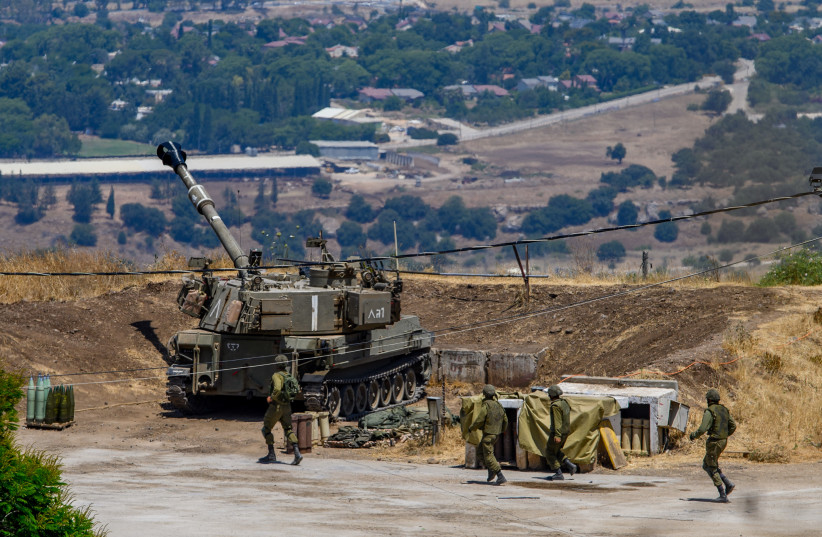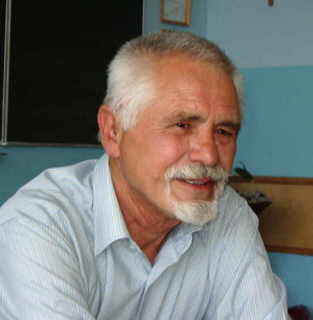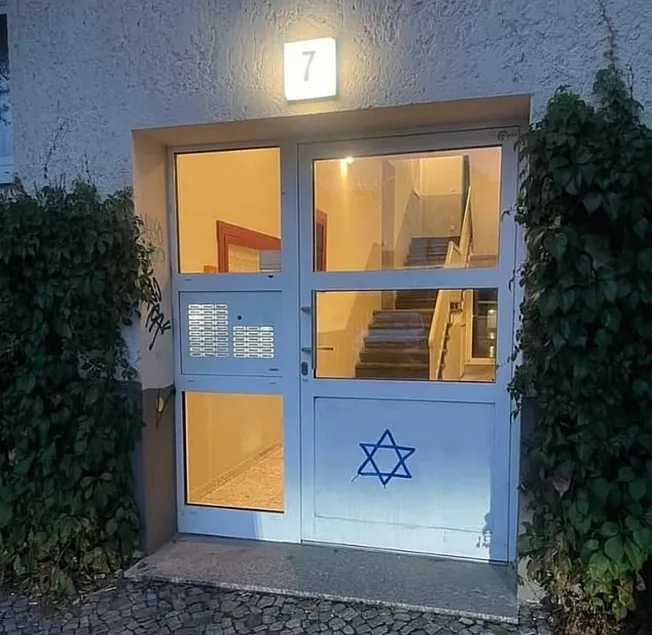 Latvian singer Alise Kante stars at this year’s Jaffa Jazz Festival
Latvian singer Alise Kante stars at this year’s Jaffa Jazz Festival
BARRY DAVIS
Alise Kante followed suit some time ago and has taken Fitzgerald’s lead and run with it into all sorts of areas of musical pursuit.
.

(photo credit: Jana Leite)
Ella Fitzgerald has served as the inspirational beacon for many a female jazz vocalist over the past 70 or 80 years. Generations of singers have been fired by the great diva’s peerless delivery, emotive expression, and joie de vivre.
Alise Kante followed suit some time ago and has taken Fitzgerald’s lead and run with it into all sorts of areas of musical pursuit. Next week the Latvian songstress will bring her skills, personality, and experience over here when she takes part in the 8th International Jaffa Jazz Festival at ZOA House in Tel Aviv, October 5-7.
But, of course, jazz is a constantly evolving art form. As such, purveyors keep pace with the artistic, cultural, and even political developments of the day. While the Carpenters sibling pop-soft rock duo is not exactly a contemporary act – they achieved worldwide success from the mid-60s through to 1983 – hits of theirs like “Close to You” and “Masquerade” have demonstrated remarkable staying power on radio stations and online playlists.
Kante dips into that font of melodic gems at the festival when she takes the ZOA House stage on October 6, at 4:30 p.m., along with Danish-American bassist-singer Kristin Korb and Romanian pianist Sorin Zlat, and Israeli vibraphonist Rami Shuler and genial drummer Shai Zelman.
The Latvian also performs in a more intimate, twosome setting on the opening day of the festival (8 p.m.), alongside Israeli guitarist Yitzchaki Franko in a Latin jazz set. That infers an eclectic take on jazz, and festival founder and perennial artistic director, veteran saxophonist and educator Amikam Kimmelman has spread the creative net far and wide. All told there are 20 shows across the three days, featuring artists from Italy, Austria, Canada, Denmark, Hungary, Germany, Belgium and the US in addition to some of our top jazz lasses and lads.
 Preservation Hall Jazz Band – Wikipedia
Preservation Hall Jazz Band – Wikipedia
Kante takes a suitably broadly-embracing approach to her craft, performing numbers in her mother tongue as well as fashioning jazzy intent out of material by popular pop and rock artists like Stevie Wonder.
The singer got a pretty sound musical education from a very young age.
“Music was always with me. My father was a conductor with a police orchestra. So I was raised in an atmosphere of music, lots of listening. I went to music school and my father engaged me in the life of orchestra, and I sang for an audience for the first time at the age of 9,” she laughs. “I remember it was Christmas time. And we got a band together in school. So these were my first steps to get to know jazz music.”
That was when she began to take on board the magic of Fitzgerald and her incomparably sonorous execution of standards. “I listened to Ella singing ‘Summertime.’ I remember hearing it and feeling wow! I tried to transcribe everything she was doing with the vocals. I tried to copy everything she did, all her vibratos. I was 13 or 14 at the time. That was my first school of [jazz] learning.”
Even so, she says she is something of a late bloomer. She puts that down, largely, to trying her best to stick to the straight and narrow, and doing what was expected of her. “I never thought I would be connected professionally with singing. I liked it but it was always said that you had to do something to make a living. You have to have something stable, think about the economics.” The teenager duly and dutifully registered for university, to get herself a qualification in a nice, safe line of work. But the music was always there, gnawing away.
Eventually, she realized there was no escaping that nagging inner truth, dropped out of higher education, and followed the Yellow Brick Road to her first artistic love. “They say that you can’t run away from your destiny. It is, somehow, always waiting for you on the corner. So, I had to say yes!” she exclaims with a laugh. “I went away from the work, from everything stable, to enjoy what my heart wanted.”
Making up for lost time
She was determined to make up for lost time, and landed her first proper gig at the relatively advanced age of 24, although it wasn’t just about her main musical line of interest. She was eager to lap it all up and learn from her seniors as well as her peers. “I performed on a ship, with a band,” she recalls. “There was jazz there too.”
She got several helping hands on her way to broadening her knowledge base and gleaning inspiration from seasoned pros. “Friends gave me new jazz CDs to listen to. I remember the first CD I really loved was by [Canadian singer-pianist] Diana Krall.” Krall got the Fitzgerald treatment from the burgeoning Latvian vocalist. “I listened to the CD again and again and tried to understand the songs. I copied them and tried to transpose them. I learned so much from that. I am still learning.”
That educational curve has continued on into the expansive Carpenters body of work. Basically, as most mainstream jazz artists will tell you, all you need to get yourself a compelling jazz venture is to latch onto a good melody and play around with it. Sounds simple enough but, of course, that requires a high level of expertise, and a willingness to take a leap or two into the unknown.
Kante is willing and able to go off in unexpected directions with the Carpenters material. The songlist for the Jaffa Jazz Festival gig includes a string of nuggets, such as “Sing,” “Rainy Days and Mondays,” “Top of the World,” and “We’ve Only Just Begun.” That’s in addition to show title pop hit (“Close to You”) and “Masquerade.” Kante and longtime sidekick compatriot guitarist Aris Ozols are responsible for arranging all the numbers, except for “Masquerade” which was refashioned by Shuler.
Any Carpenters fan will, no doubt, cite Karen Carpenter’s singularly rich velvety vocals as a prime reason for their attraction to the duo’s work. I wondered whether Kante was similarly taken with her singing and whether she tried to emulate that nonpareil style. True to the improvisational art form to which she devotes most of her waking hours, Kante says that while she lauds the late crooner’s skills, she prefers to find her own way through the Carpenters’ oeuvre. “I translate the songs according to my own information. We have to give new meaning to the songs, the music we give new arrangements to. That brings a bit of different meaning.” Stands to reason. If Kante were going to do one-on-one renditions we might just as well put on a record or drop into YouTube.
With the Carpenters’ lush and superbly crafted songs as an anchor, Kante can reach for the stars in Tel Aviv.
Zawartość publikowanych artykułów i materiałów nie reprezentuje poglądów ani opinii Reunion’68,
ani też webmastera Blogu Reunion’68, chyba ze jest to wyraźnie zaznaczone.
Twoje uwagi, linki, własne artykuły lub wiadomości prześlij na adres:
webmaster@reunion68.com









